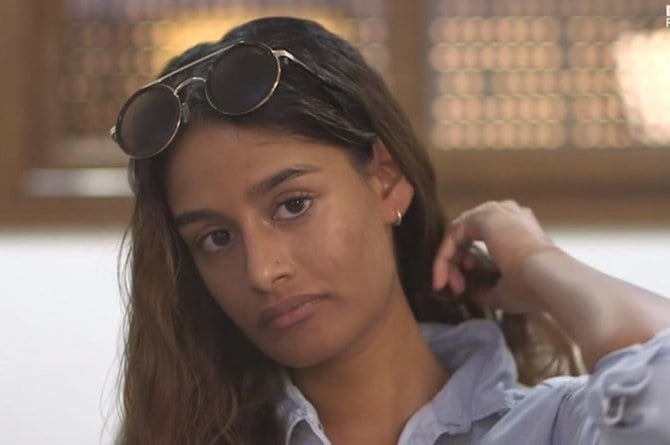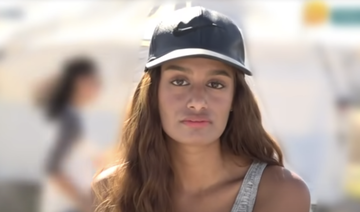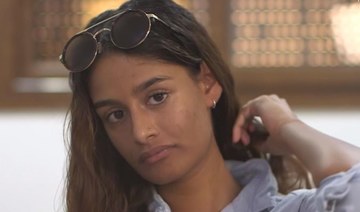LONDON: Shamima Begum has spoken of the first time she talked to her mother after leaving the UK in 2015, at the age of 15, to join Daesh in Syria.
“The first time I called my mum she was just crying. I felt like she was trying to make me feel guilty,” she told journalist Joshua Baker during an interview for the second series of the BBC podcast “I’m Not A Monster,” which began this month.
“I don’t know, maybe it was just emotions but I just didn’t say anything to her, I let her cry. I just kept telling her I was OK.”
Baker asked her what she had said when her mother pleaded with her to come home, to which she replied she “just said no.”
Begum, now 23, added that although she had not yet fully committed to her decision to join the extremist group at that point, she did not want to give her mother false hope because she did not know whether she would be able to leave.
Baker then asked Begum how she felt when she heard her sister publicly beg her to leave Daesh.
“I couldn't believe it,” she said. “I couldn’t believe that my sister would travel all the way to Turkey thinking that she could save me.”
Begum even suggested her family were “responsible” for the media storm that erupted around her when her journey to Syria was revealed, because of their emotional pleas for her return.
“But I don’t think they knew how far it would go and how big it would become,” she added. “I blame the media for obsessing over my friends and I so much.”
The podcast series, new episodes of which are released each Wednesday, also revealed information about people smuggler Mohammed Al-Rasheed, who helped Begum travel to Syria while he was also working as an agent for Canadian intelligence services.
The BBC has faced a public outcry this month over the podcast series, which focuses on Begum’s case and in which she defends her actions. The UK’s public service broadcaster responded by saying the series is “not a platform for Shamima Begum to give her unchallenged story” but rather a “robust, public-interest investigation” into her case.
Begum was born in the UK to parents of Bangladeshi origin and citizenship. She was living with her family in the Bethnal Green area of London when she left for Syria. Shortly after arriving in the war-torn country she married Dutch-born Yago Riedijk. In the years that followed, she gave birth to three children, all of whom died young. In 2019, she was discovered living in a refugee camp in northern Syria. The UK government revoked her British citizenship and said she would not be allowed to return to the country.













